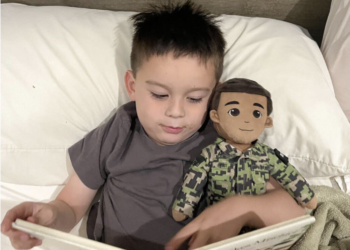“I am scared. I wish I had more words to say beyond scared,” said Army spouse Coral Ben-Atar. “I don’t feel the [baby formula] shortages will end soon.”
FDA Commissioner Dr. Robert Califf confirmed Ben-Atar’s hunch, sharing with lawmakers that grocery shelves will likely remain understocked until at least July. U.S. Transportation Command, meanwhile, flew in 132 pallets of specialty infant formula from Germany in late May. And on military installations, the agency that runs commissaries is prioritizing formula shipments to overseas and remote locations, according to a spokesman.
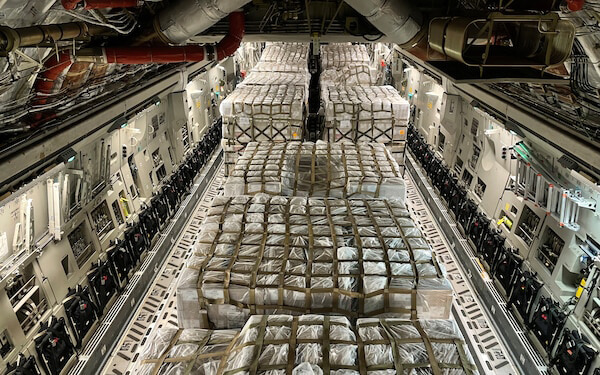
“Current stock levels of available baby formula are … 50% for CONUS and 70% for OCONUS commissaries,” wrote Kevin L. Robinson in an email. “We are working with our suppliers to increase our levels of supply on these critical products. Frankly, we don’t expect to see improvements in the near-term.”
READ: Supply chain delays impact military families stationed in Japan
TikTok appeal
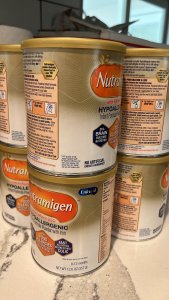
Ben-Atar began noticing a dip in the supply of her 8-month-old son’s lactose-sensitivity formula at Fort Wainwright in Alaska earlier this year. She tried multiple stores on- and off-base, but her stockpile shrunk precipitously. To replenish their supply, Ben-Atar bought several boxes while traveling CONUS. Just as they returned to Alaska, a massive amount of formula was recalled, leaving her son with almost nothing.
Enter the power of TikTok.
Ben-Atar first asked relatives in the lower 48 to ship her formula. It worked ― until CONUS locations began running low, too. She then turned to social media in April to ask her 128,000 followers for assistance. Could they look for her son’s formula at their grocery stores?
“The appeal was successful, and I’ve since had eight cans sent to me from all over the country,” she said. Between family and TikTok, Ben-Atar has received formula from 10 states.
“For now, I have enough cans to feel safe for a few weeks,” she said. “I still have not found my son’s formula in-store myself. I plan to return to social media if absolutely necessary.”
Traveling for treasure
Army spouse Kimberly Arrington found herself on the other side of the problem. Her job requires regular travel, meaning she is often swinging through supermarkets around her region. She knew from spouse social media pages on Fort Gordon that many parents were desperate.
“I stopped in the most random of small towns along my route searching the aisles,” she wrote in an email. “When I would stop for meals, I would see heartbreaking posts about moms who can’t find their baby’s formula.”
Arrington soon began matching requests from the Fort Gordon page to cans across neighboring states. Once home, she delivered the formula or arranged pickup. Altogether, she and her husband paid for 50 cans out-of-pocket, primarily for soldiers on WIC.
“Every single family we helped was extremely grateful; several had tears in their eyes knowing they could feed their babies,” Arrington wrote. “I never turned any families away.”
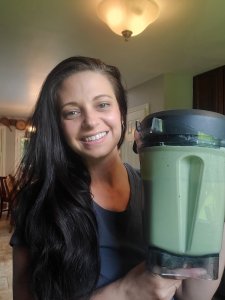
Alexandria Robinson, an Army spouse in Northern Virginia, fosters children alongside her active-duty husband. Their current placement is a 2-year-old girl with severe dairy allergies who uses a G-tube to eat. The child needed a specific specialty formula. So when it was recalled, it wiped out their entire supply. That began Robinson’s hours-long daily hunts at pediatricians’ offices and online classifieds ― but she was unsuccessful. She couldn’t find it anywhere.
After trying other brands of specialty formulas that still caused the girl to vomit at a dangerous frequency, Robinson switched gears. After consulting their gastrointestinal team, she began blending real food to meet the child’s unique nutritional needs. It required a $400 high-quality blender and about $150 a week on food items. But to Robinson’s great surprise, her foster daughter stopped vomiting altogether.
“We will absolutely not be returning to formula, even if it returns to the shelves,” she wrote in an email. “I feel like my trust of these formula plants is entirely tainted. Children lost their lives; that’s not something I’m willing to take a chance with.”
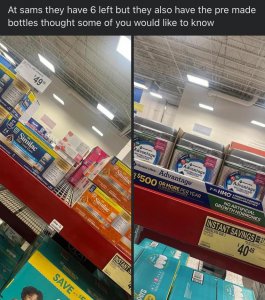
Over at Fort Sill, Army spouse Sharon Couzens runs a breastfeeding and baby supply closet. She regularly connects parents requesting formula or milk for their babies with people who can donate or have located a stocked store.
“Sometimes someone will say, ‘It’s Friday, I don’t get WIC until Monday, and I only have enough for a couple of bottles,’” she said. “People will come together and help each other.”
That’s the entire reason why Arrington stepped up to become a personal shopper for so many families at Fort Gordon.
“All babies deserve to eat and be provided with adequate nourishment,” she said. “I did this because I wanted these people to know that there are still people who genuinely care.”
Read comments

















